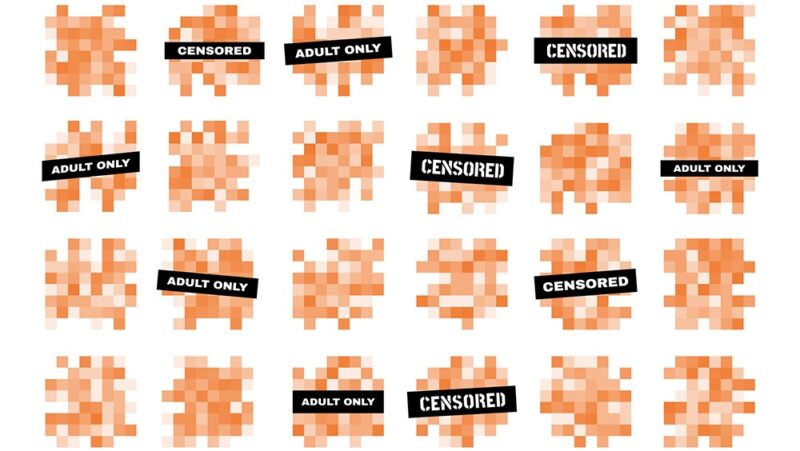Banned Commercials: 10+ Ads That Were Pulled or Rejected (and Why)

Advertisers use many tactics to convince or sell to the public: persuasion, exaggeration, humor and shock.
All these types of speech are protected by the First Amendment. But can commercials go too far?
In this article, we explore when and why commercials may be banned or otherwise limited – and who can do the banning, such as the government and broadcast stations.
Ways commercials could be banned
People use the word “banned” to apply to many different situations, but the First Amendment aspects depend on specifically what is meant by “banned.” Here are several different ways that commercials could be limited or prevented from being aired in ways one might call “banned.”
Banned by government
Commercial speech is protected as free speech under the First Amendment. But advertising such as commercials can be more highly regulated for health, safety and consumer protection than other kinds of speech like political speech. This means that while it is rare for commercials to be banned by the government, it does happen. Federal and state laws prohibit unfair or deceptive commercials. At the federal level, the Federal Trade Commission enforces these laws. Private people may also sue advertisers that violate federal or state laws.
The Federal Communications Commission has its own set of regulations regarding advertising on broadcast television and radio. For example, FCC rules say that no more than 10.5 minutes of commercials can air during each hour of children’s programming on weekends and only 12 minutes per hour on weekdays. Content, including advertising, that is profane and indecent cannot run on over-the-air stations between 6 a.m. and 10 p.m., according to FCC rules. And some products like cigarettes cannot be advertised by commercials at all.
If a commercial contains unprotected speech such as defamation or true threats, someone could file a defamation lawsuit or press criminal charges. If they win the case, a court could prevent further broadcast.
Banned by stations or streaming platforms
Generally, TV and radio stations and video streaming platforms can create their own policies for carrying commercials. They can decline to sell airtime for potentially controversial ads or for ads that violate their policies.
In most cases, they cannot be required by the government to air certain commercials.
The exception: If stations choose to air political ads by candidates for a state or federal office, they must grant all candidates running for that same office an equal opportunity to purchase advertising time.
RELATED: Why candidates must say "I approve this message" in campaign ads
Examples of commercials that have been banned
Whether by advertisers, stations or the government, here are some examples of commercials that have been banned, rejected or taken off the air.
Alcohol commercials: Banned voluntarily until 1996
Beginning in 1936 (for radio) and 1948 (for TV), hard liquor commercials were banned – but not by the government.
The Distilled Spirits Council, a private industry group, banned hard liquor commercials by its members. This self-censorship was in place for decades until 1996. That May, the U.S. Supreme Court struck down a Rhode Island law banning advertisements of the price of liquor outside liquor stores. Months later, Seagram began buying ad time on television in defiance of the industry ban. In November 1996, the industry group voted to end its self-imposed ban.
Today, beer, wine and spirits production associations in the U.S. still maintain voluntary agreements to try to prevent alcohol commercials anywhere the audience is more than about 30% under the legal drinking age of 21. Before 2003, the limit applied to programs with 50% or more underage viewers. The FCC monitors and reports on compliance with this agreement but does not impose penalties or take other official action.
Cigarette commercials: Banned by the government since 1970
In the 1960s, “Tobacco companies were the single largest product advertisers on television,” according to History.com. But the U.S. surgeon general reported that smoking was increasingly associated with health risks. Congress passed a law requiring warning labels on cigarettes. Then it moved to ban cigarette commercials from radio and TV. The ban became law on April 1, 1970, and went into effect on Jan. 2, 1971. Tobacco companies shifted their advertising to print media, like magazines, where the ads were not banned.
Movie trailer commercials: Pulled by stations or advertisers after complaints
A 1978 trailer for the movie “Magic” featured a ventriloquist dummy. The commercial reportedly scared children, generated parent complaints and wasn’t seen on TV again – at least not before 10 p.m.
Six years later, a commercial for the R-rated Christmas horror film “Silent Night, Deadly Night” was similarly received. After it aired during family-friendly shows, several stations stopped showing the ad. After protests at theaters, the movie’s producer pulled the film from theaters and the commercials from the air – reportedly at the urging of parent company Coca-Cola, known for its own Santa-themed commercials.
Advocacy and issue commercials: Banned by broadcasters due to station policies
Many stations have policies to limit potentially controversial commercials or to ban advocacy.
For example, in 1989, a National Organization for Women commercial was rejected by several radio stations as advocacy-oriented because it advertised a march in support of abortion access. Several other stations did air the ad.
In 2005, two public radio stations found themselves in a dispute with the New Israel Fund, a social and cultural nonprofit, and an advertising company that had created copy for that nonprofit.
Public radio and television stations are not owned by the government but receive government funding. As a condition of receiving this government funding, they are prohibited from promoting goods and services in commercials. But they are allowed to engage in underwriting, statements that acknowledge donors who give money to the station. So public broadcast stations are subject to general FCC rules regarding advertising and the additional requirement to engage in underwriting, not commercial advertising.
In this instance, the two public radio stations also had a policy of not accepting underwriting content that contained issue advocacy and rejected the underwriting because it contained a credit at the end that read “comes from the New Israel Fund, promoting equality and social justice for all Israelis” and directed listeners to the organization's website.
In 2011, Fox rejected a religious Super Bowl commercial, explaining “Fox Broadcasting Company does not accept advertising from religious organizations for the purpose of advancing particular beliefs or practices.” The channel has since allowed religious commercials during the big game.
Two Washington, D.C., radio stations rejected commercials by the Oneida Nation in 2013. The ads supported changing the name of Washington’s football team from a term commonly considered a racial slur (it has since been changed). Instead, the stations opted to cover the controversy in their programming.
Political commercials: Banned by stations
In 2003, California faced an election in which voters would decide whether to recall Gov. Gray Davis and, if so, which of 135 candidates would replace him. The special recall election was called just a few months before the November ballot. Two radio companies decided to ban ads from gubernatorial candidates on their stations. Because stations are required to offer all candidates for a particular office the opportunity to purchase commercials if they allow any to do so, and they must by law offer the lowest ad rate to every candidate who wants to advertise, station owners decided it was financially better to not sell to any candidates, which they are allowed to do.
In May 2017, several TV stations including ABC, CBS, NBC and CNN rejected a commercial by the campaign of then-President Donald Trump, asking that it be edited to remove a “fake news” banner over images of news anchors. While cable stations like CNN may set their own policies for political ads, broadcast stations are required to air all candidates’ ads if they allow any. But this rule applies only in advance of elections and to candidates running for office, not after elections.
In 2022, Democrats objected to the streaming video platform Hulu rejecting ads related to abortion and guns. Hulu had a policy against any potentially controversial commercials. The streaming service later updated its policies to enable a wider range of commercials.
Banned commercials: The First Amendment bottom line
While the government can ban commercials only in certain specific instances, thanks to the First Amendment’s protection of free speech, broadcast radio and TV stations have their own free speech rights to air what they wish. This includes the right to reject commercials for any of the reasons explored in this article and many others.
So, if you have a faint memory of a startling commercial you saw only once, chances are that it was pulled by the advertiser itself. Less likely explanations include rejection by stations or, more rarely, a government ban.
This report is compiled based on previously published Freedom Forum content and with the input of Freedom Forum experts.
Is Obscenity Protected by the First Amendment?
8 Controversial Commencement Speakers Throughout History
Related Content

